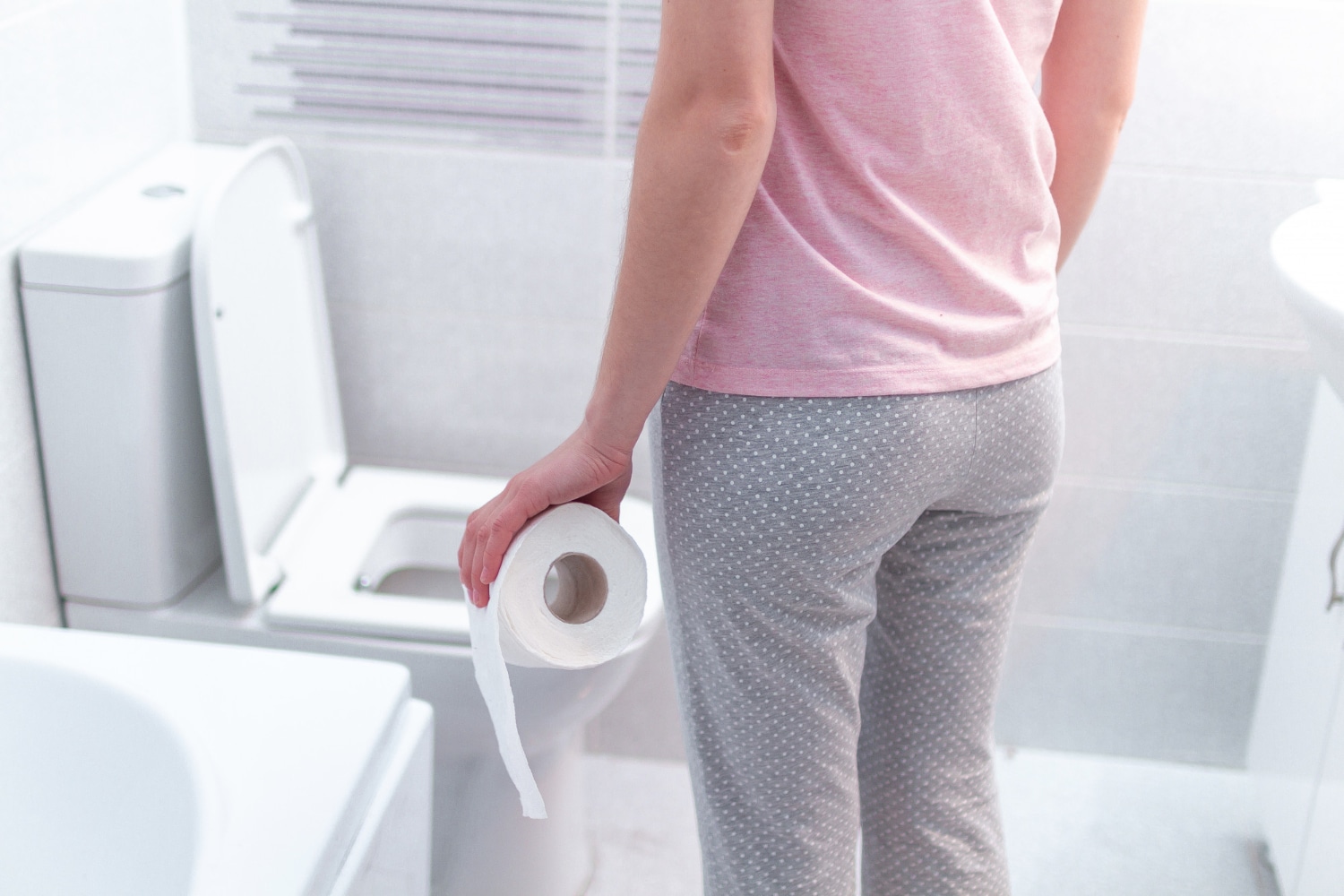Constipation takes place when a person struggles to move his bowels. Typically, a constipated person is only able to have less than three bowel movements a week.
So, if you can only do it twice a week or once a week, this likely means you are constipated, and you need to do something about it because constipation can have more severe consequences down the line, like having blockages and perforations in your colon.
For the most part, people can remedy their constipation by drinking more water and improving their diet. Increasing the amount of fiber is key to succeeding. Dietary fiber softens stools by drawing water from the surrounding areas toward the stools. This results in stools that are easier to pass, so your bowel movements will be less painful or not painful at all.
There are instances when the frequency of a person’s bowel movement varies, depending on many factors. Poor diet and lifestyle changes and the presence of new medication can all result or contribute to constipation.
Sometimes constipation goes away spontaneously. However, if yours doesn’t, you must examine your diet after consulting with a physician. Some of the more common symptoms of constipation include belly bloating, a feeling that not all of your stools have come out, small stools (pellets) or harder, tubular pellets, trouble having a regular bowel movement, and having fewer than normal bowel movements.
Can Pasta Cause Constipation?
The medical community is somewhat split when it comes to pasta. In general, any foodstuff that is commercially processed and is made with white flour is considered unhelpful in dealing with constipation. These food items can even contribute to constipation. However, manufacturers have shifted to whole grain or whole wheat for years now, and like brown rice, black rice, and red rice, these entire wheat variants of the pasta that we know and love offer a better nutritional profile to the populace. However, regular pasta that is made simple with US wheat or durum wheat (as in Italian pasta products) can contribute to constipation if your diet does not have a sufficient amount of dietary fiber.
In case you want to shift to whole grain products and whole wheat pasta, the main benefit you will be getting is the heaping dose of insoluble fiber. There are two categories of dietary fiber.
Soluble fiber forms a gel inside the intestines. This fiber gel helps absorb fats and other unsavory compounds from food. This has a beneficial impact on the body, as it can help lower the total cholesterol absorbed by the body.
Whole grain pasta contains insoluble fiber, which is the type that stays in the colon and draws water toward it. As the water is drawn toward the stool, hardened stools eventually soften, and when the time is right, it is released with less effort than before.
The more you add dietary fiber to your diet, the more efficient that colon becomes, and the thread can even remove some of the impacted stools that may have been having around.
Why Can Pasta Cause Constipation?
Medical science points at gluten as one of the primary causes of constipation when people eat pasta products, and other products made with flour (especially flours made with wheat). People who have celiac disease are most susceptible to developing constipation from eating anything with gluten, and unfortunately, pasta contains a lot of gluten to begin with. Gluten intolerance is expected, so if you experience constipation right after eating pasta or any other food product containing gluten. You have to consult with a physician to ensure that you don’t have celiac disease.
Celiac disease can be painful for people because it is an auto-immune condition. The body ends up attacking the gluten in the body, and this interaction causes pain and a host of other digestive issues. If you do have celiac disease, you must stick to the diet plan advised by your physician so your digestive tract can heal. If not, expect a lot of discomforts if you keep eating food items with gluten.
There are also instances when a person has other conditions that cause constipation. Non-celiac gluten sensitivity is also an existing medical condition where the body is simply allergic to gluten, and the resulting reaction causes constipation. IBS can also cause the same symptoms.
What Should I Eat to Avoid Constipation?
For the most part, you should watch your fiber intake and reduce food items that irritate the bowels in some way. High-fat food items, for example, can upset the stomach and cause discomfort, which would compound any symptoms of constipation you already have.
- Pulses – Beans and other related food products are very high in fiber. A single serving can provide up to 25% of the recommended daily allowance for dietary fiber. If you love chickpeas and lentils, continue eating these, as the extra boost in fiber will help improve your bowel movement.
- Soups – Consuming clear soups can help ease constipation as it is water with some flavors and perhaps some vegetables and a little meat. When you are constipated, avoid eating salty, spicy, and super sweet foods. Give your colon rest by eating simpler foods like soups that are easier for the colon to process/digest.
- Wheat bran – We love this ‘shortcut’ of sorts because wheat bran is almost entirely made of dietary fiber. Wheat bran is also considered a traditional or folk remedy for constipation.
- Broccoli – This vegetable contains sulforaphane, which has been shown to relax the digestive system. A simple digestive system can help improve bowel movements and reduce any pain associated with moving your bowels. Sulforaphane can also help improve the overall health of the bowels by working on the intestinal flora.

